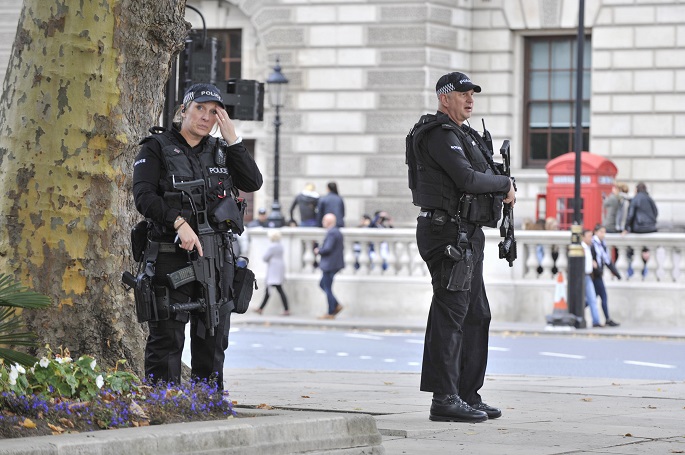Failure to curb web terrorism contributes to security loopholes in Britain
Published : 19 Sep 2017, 21:50

Britain has suffered five terrorist attacks over the past six months. As British police are investigating into the latest terrorist explosion at a subway station in west London four days ago, a report published Tuesday gave some clues to a high frequency of terrorist attacks in the United Kingdom.
Terrorist groups are taking advantage of hi-tech progress to spread extremist propaganda online in a bid to encourage their sympathizers to stage attacks in Britain and other western countries, with low-tech skills, including making an improvised explosive device at home.
Online jihadist propaganda attracts more clicks in Britain in any other European country and the main internet companies are failing to curb it, said the report published by the Policy Exchange think tank.
After being brainwashed, an individual sympathizer can become "a lone wolf". Self-starters and those acting alone can easily view material that encourages them to launch low-cost attacks.
The terrorist attack on Parsons Green subway station involving an explosive device that can be built from instructions available online underlined once again challenges Britain faces from the Islamic State, also known as IS or ISIS.
"Though it is still early days in the investigation, attention has already focused on the possible role of the internet in radicalizing the perpetrators," General David Petraeus, a former U.S. commander in Afghanistan and former director of the Central Intelligence Agency, said in a foreword for the report.
People already warned that IS propaganda was producing homegrown terrorists at an unprecedented rate. The report made clear the scale and sophistication of the online operations used by Islamic extremists to disseminate their messages online.
"It shows that extremist content is spread across a broad spectrum of platforms, including Facebook, Twitter and YouTube," Petraeus said in a signed article published by The Times newspaper on Tuesday.
"Jihadist activity online has proven agile, durable, and pervasive -- easily accessible to those inclined to seek it out," said the general. "It is the content that allows Islamic State and al-Qaeda to reach into our societies, targeting their most vulnerable members."
In Britain, vulnerable teenagers and young adults begin by exploring extremist content on some social media platforms, and they move to contact extremists on encrypted apps.
As time elapses, they are being brainwashed in order to tear open a security net in the western countries after a strict travel ban effectively prevents known terrorists from entering their target countries.
ISIS' online output, contrary to previous claims, is not falling but has remained constant over the past three years. "An average week will see over 100 new core articles, video and newspapers produced by ISIS and disseminated across a vast ecosystem of platforms, file-sharing services, websites and social media," the report said.
Jihadists have shown particular facility in exploring ungoverned or even inadequately governed spaces in the Islamic world.
"It is clear that our counter-extremism efforts and other initiatives to combat extremism on line have, until now, been inadequate," said the report. "There is no doubting the urgency of the matter. The status quo clearly is unacceptable."
Two thirds of British people believed that internet companies were doing too little to combat radicalization and three quarters wanted them to do more to remove extremism content, the report said.
The United Kingdom "is losing web war against ISIS propaganda", the report said.
Therefore, internet giants must do far more given the serious terrorist threat. At the same time, the government also has a critical role, by thinking creatively about how the new media should be regulated.

